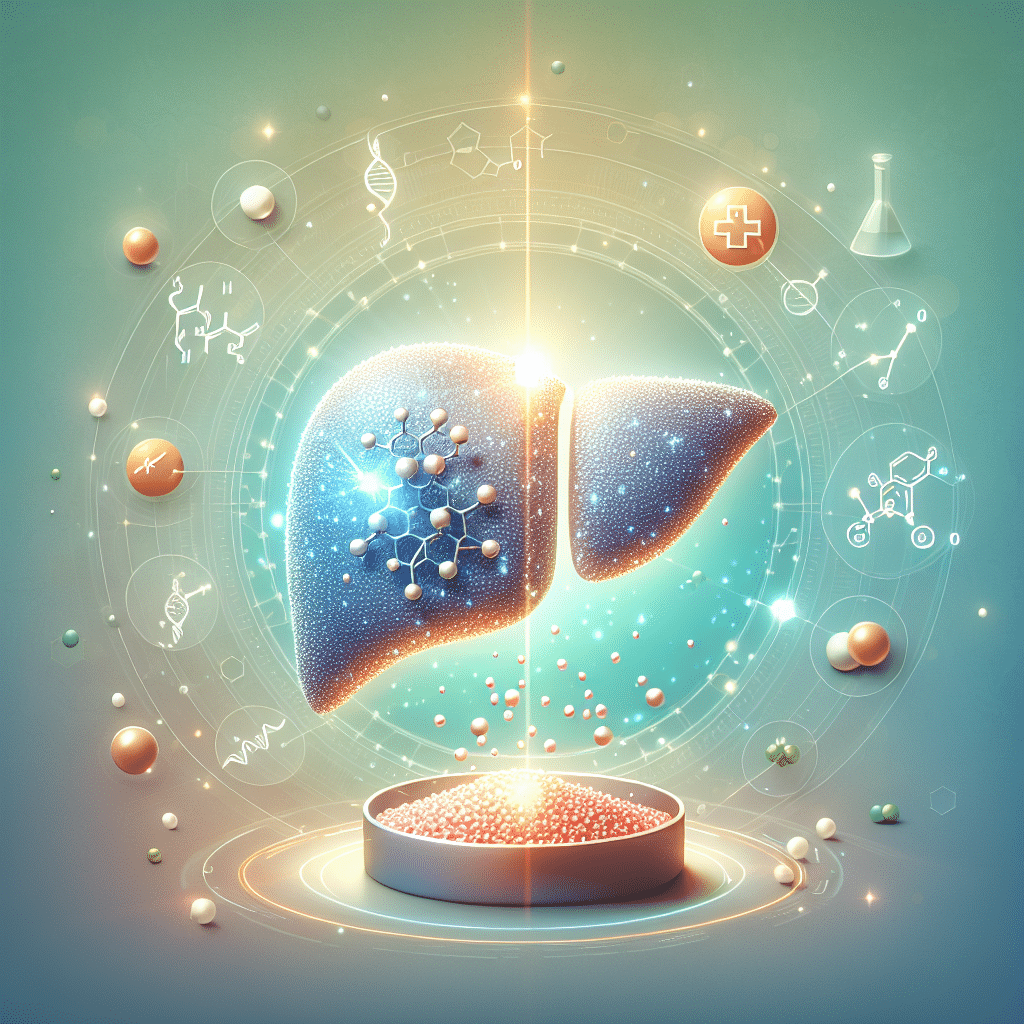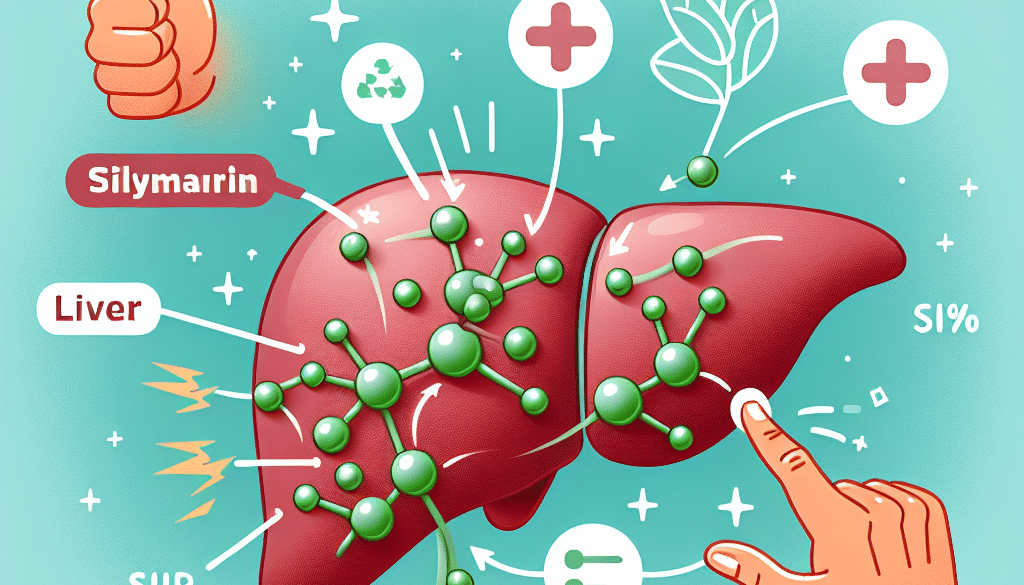Is Silymarin Good for Liver Health?
-
Table of Contents
- Silymarin and Liver Health: A Comprehensive Analysis
- Understanding Silymarin
- The Science Behind Silymarin’s Liver Benefits
- Clinical Studies on Silymarin’s Effectiveness
- Silymarin Supplementation: Dosage and Safety
- Conclusion: Weighing the Evidence on Silymarin and Liver Health
- Enhance Your Health with ETChem’s Protein Products
Silymarin and Liver Health: A Comprehensive Analysis

The liver is a vital organ responsible for numerous functions in the body, including detoxification, protein synthesis, and the production of biochemicals necessary for digestion. Given its importance, maintaining liver health is crucial. Silymarin, a natural compound extracted from milk thistle, has been widely studied for its potential liver-protective effects. This article delves into the scientific evidence surrounding silymarin and its role in liver health.
Understanding Silymarin
Silymarin is a flavonoid complex derived from the milk thistle plant, Silybum marianum. It consists of several components, with silybin being the most active. Traditionally, milk thistle has been used for treating various liver disorders. Modern research has focused on silymarin’s antioxidant, anti-inflammatory, and antifibrotic properties, which may contribute to its hepatoprotective effects.
The Science Behind Silymarin’s Liver Benefits
Several studies have investigated the therapeutic potential of silymarin for liver health. Here are some of the key findings:
- Antioxidant Properties: Silymarin has been shown to increase the levels of glutathione in the liver, a potent antioxidant that helps protect cells from damage caused by free radicals.
- Anti-inflammatory Effects: It may reduce inflammation in the liver by inhibiting the release of pro-inflammatory cytokines and modulating immune responses.
- Antifibrotic Action: Silymarin can interfere with the fibrotic process in the liver, potentially preventing the progression of liver diseases such as cirrhosis.
- Enhancing Liver Regeneration: Research suggests that silymarin may promote liver regeneration by stimulating protein synthesis and altering the outer cell membrane of hepatocytes (liver cells).
These mechanisms collectively contribute to silymarin’s reputation as a liver-protective agent. However, it’s important to note that while the evidence is promising, more research is needed to fully understand its efficacy and optimal dosing.
Clinical Studies on Silymarin’s Effectiveness
Clinical trials have provided insights into silymarin’s potential benefits for various liver conditions:
- Alcoholic Liver Disease: Some studies have indicated that silymarin may improve liver function in patients with alcoholic liver disease, although results are mixed.
- Non-Alcoholic Fatty Liver Disease (NAFLD): Silymarin has shown potential in improving liver enzymes and reducing liver fat accumulation in NAFLD patients.
- Hepatitis: There is evidence that silymarin may benefit patients with viral hepatitis, particularly hepatitis C, by reducing liver inflammation and viral load.
- Liver Cirrhosis: In patients with cirrhosis, silymarin may help slow disease progression and improve survival rates.
Despite these findings, the clinical effectiveness of silymarin remains a topic of debate, with some studies reporting no significant benefits. Therefore, it’s essential to consult healthcare professionals before using silymarin for liver-related issues.
Silymarin Supplementation: Dosage and Safety
When considering silymarin supplementation, it’s crucial to understand the recommended dosages and potential side effects:
- Recommended Dosage: The typical dosage of silymarin ranges from 140 to 210 milligrams taken 2 to 3 times daily. However, dosages can vary based on the specific liver condition being treated.
- Safety Profile: Silymarin is generally considered safe when taken at recommended doses. Side effects are rare but may include gastrointestinal disturbances and allergic reactions.
- Drug Interactions: Silymarin may interact with certain medications, so it’s important to discuss its use with a healthcare provider, especially if you are on prescription drugs.
As with any supplement, quality matters. It’s advisable to choose products that have been tested for purity and potency by third-party organizations.
Conclusion: Weighing the Evidence on Silymarin and Liver Health
In conclusion, silymarin has demonstrated potential benefits for liver health, supported by its antioxidant, anti-inflammatory, and antifibrotic properties. While clinical studies offer some evidence of its effectiveness in treating various liver conditions, the results are not conclusive. Individuals interested in using silymarin should do so under the guidance of a healthcare professional to ensure safety and proper dosing.
The key takeaways from this analysis are:
- Silymarin may offer protective benefits for the liver due to its various biological properties.
- Clinical studies show mixed results, highlighting the need for further research to establish definitive conclusions.
- Supplementation should be approached with caution, considering dosage recommendations and potential interactions with medications.
Enhance Your Health with ETChem’s Protein Products
If you’re looking to support your overall health, including liver health, incorporating high-quality protein into your diet is essential. ETChem’s protein products, such as their various types of collagen, can be a valuable addition to your nutritional regimen. Collagen is not only beneficial for skin and joint health but also plays a role in maintaining a healthy gut, which is intrinsically linked to liver function.
ETChem’s commitment to quality ensures that you receive the best protein supplements to complement your health goals. Whether you’re a distributor, trader, or manufacturer in the nutraceutical or food and beverage industry, ETChem provides a range of protein solutions to meet your needs.
About ETChem:
ETChem, a reputable Chinese Collagen factory manufacturer and supplier, is renowned for producing, stocking, exporting, and delivering the highest quality collagens. They include marine collagen, fish collagen, bovine collagen, chicken collagen, type I collagen, type II collagen and type III collagen etc. Their offerings, characterized by a neutral taste, instant solubility attributes, cater to a diverse range of industries. They serve nutraceutical, pharmaceutical, cosmeceutical, veterinary, as well as food and beverage finished product distributors, traders, and manufacturers across Europe, USA, Canada, Australia, Thailand, Japan, Korea, Brazil, and Chile, among others.
ETChem specialization includes exporting and delivering tailor-made collagen powder and finished collagen nutritional supplements. Their extensive product range covers sectors like Food and Beverage, Sports Nutrition, Weight Management, Dietary Supplements, Health and Wellness Products, ensuring comprehensive solutions to meet all your protein needs.
As a trusted company by leading global food and beverage brands and Fortune 500 companies, ETChem reinforces China’s reputation in the global arena. For more information or to sample their products, please contact them and email karen(at)et-chem.com today.




